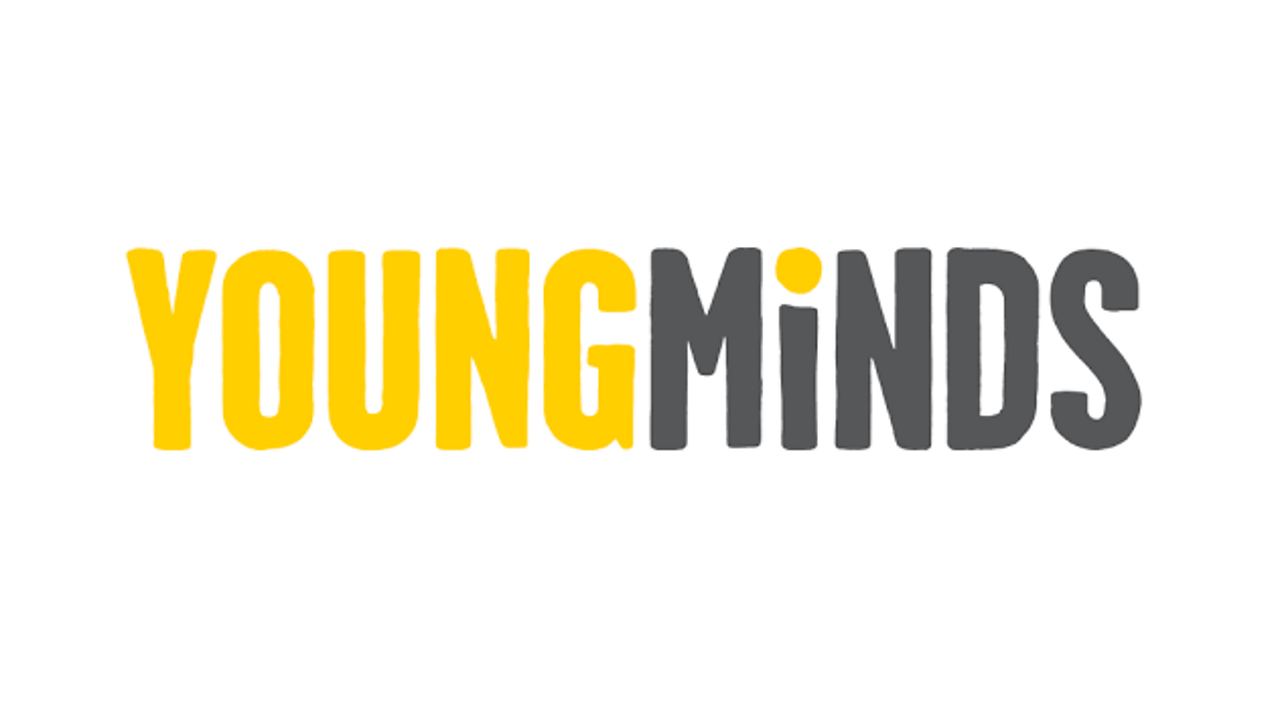Student Welfare
We are committed to follow our school's Mission to being a joyous, peaceful, forgiving and inclusive community. We are devoted to ensuring that all students are cared for and supported when in need.
Our Student Welfare Department, is led by Dr Stevenson, Deputy Headteacher.
We have special pages devoted to the following:
How can talking to an adult help?
Talking about your problems to someone you trust means they can help you see things differently. They can give you new ideas about how to cope, or help you change things in your life that worry you. Once you tell someone, they can be there for you in the future too.
Putting things into words helps. Sometimes it's just good to say what's on your mind. Talking to someone could make you feel like you don't have to deal with it on your own and make things feel more manageable.
What will happen if I tell someone?
People like teachers, doctors, nurses, social workers and police officers will always listen and take you seriously. They have a duty to help you and keep you safe. And if you tell them what’s happening, they’ll want to help.
The person you tell might need to let someone else know what’s happening, but you can always ask about this. It’s also okay to tell them what you’d like to happen and keep asking questions about what’s going on.
Anti-Bullying Advice
Bullying is saying or doing something, more than once, to deliberately hurt or upset someone else. It can be physical, verbal or indirect (spreading rumours, excluding you, or posting information about you online).
How can I get help?
There are lots of different people at school that you can talk to including your Form Tutor, Head of Year or any member of staff you feel comfortable talking with. If you are feeling upset and you would like help straight away, visit the Pastoral Office (next to Main Reception) or the Learning Support Centre (top floor of St John's).
We will listen to any concerns you have and then together decide the best way to resolve them. We will discuss any actions with you first before doing anything to help.
Anti-Bullying Policy
To access our Anti-Bulling Policy, click on Policies.
Social Emotional Mental Health Support
For general advice on supporting mental wellbeing, click on the images below.
Pastoral Team including Heads of Year
To find a member of staff's email address you add our domain name @ndhs.org.uk i.e. aperson@ndhs.org.uk
 |
 |
| Deputy Head Student Welfare Alternate DSL (ADSL) Shirley Stevenson sstevenson@ Ex. 1025 St Julie's, Room J16 |
Designated Safeguarding Officer (DSO) Janice Murphy jmurphy@ Ex.1080 |
| Attendance Manager Caroline Tungate Ex. 1090 ctungate@ Pastoral Office |
|
 |
 |
| Senior Pastoral Support Worker (KS3) Designated Safeguarding Officer (DSO) Jo Bryant jbryant@ Ex. 1022 Pastoral Office |
Pastoral Support Worker (KS4) Designated Safeguarding Officer (DSO) Miss Louise Riseborough lriseborough@ ex1091 Pastoral Office |
 |
|
| Head of Year 7 Peter Hedges phedges@ Ex. 1005 Pastoral Office |
|
 |
 |
| Head of Year 8 Stephen Maxwell smaxwell@ Ex. 1021 Pastoral Office |
Head of Year 9 Charli Bates cbates@ Ex. 1023 Pastoral Office |
 |
 |
| Head of Year 10 John Hodds jhodds@ Ex. 1089 Pastoral Office |
Head of Year 11 Anne Tiburtius atiburtius@ Ex. 1090 Pastoral Office |
 |
|
| Lay Chaplain Alex Savage asavage@ Ex. 1036 Chaplaincy Office J18 |
Learning Support Team
To find a member of staff's email address you add our domain name @ndhs.org.uk i.e. aperson@ndhs.org.uk
 |
|
| Designated Safeguarding Lead (DSL) & Learning Support Centre Manager Janice Murphy jmurphy@ Ex.1080 |
Learning Support Centre Supervisor Laura Gratton lgratton@ |
 |
 |
| Student and Family Support Worker Bradley Penton bpenton@ |
Student and Family Support Worker Corinne Pointer cpointer@ |
Safeguarding Issue
Feeling like something's not right?
Are you feeling worried about
- Something that has happened to you or someone else
- Not knowing who to turn to
- Coping with your mental health
Whatever's happening, you don't have to cope alone. If you have any concern or worry, you can speak to any member of staff as we are a 'listening school'. They will then pass on your concerns to the Safeguarding Team. Or you can speak directly to any member of our Safeguarding Team.
For more information visit our safeguarding page.
Outside Agency Support and Advice
Childline.org.uk
Get free, confidential support from a Childline counsellor about anything you want to. You can talk to Childline from 7:30am-3:30am every day, either online, by calling 0800 1111 or by sending a message from their website.
You have not allowed cookies and this content may contain cookies.
If you would like to view this content please
Kooth
Kooth is a digital mental health support service for young people aged 11 to 25 where they can access online support from a team of experienced counsellors. Access is free and there are a range of tools, such as activities and moderated chat forums that can be used to enhance young people’s mental health and wellbeing.
Parentinfo.org
Support and guidance for parents from leading experts and organisations
School Nursing Team

The NHS School Nursing Service provide a confidential, non-judgemental service to young people who are seeking advice regarding their physical health or emotional wellbeing. They provide support and advice around healthy eating, exercise, sleep, emotional wellbeing, healthy relationships, stress and many other issues that impact upon health and wellbeing.
- Young People should contact direct using our text messaging service; CHAT Health 07480635060
- Professionals, parents and young people can contact via' Just One Number', 0300 300 0123 and speak to a Clinician for advice and support.
Visit your doctor or nurse
You can make an appointment with your doctor any time. You can usually see them by yourself. Even if you can’t see your doctor in person, you can usually talk over phone. Find out more about visiting your doctor.
Victim Support
Victim Support is an independent charity dedicated to supporting victims of crime and traumatic incidents including domestic violence and abuse in England and Wales.
Contact the police
If you’re feeling unsafe, you can always talk to the police.
- In an emergency, you can call 999 to get help straight away.
- To report an incident or crime you can contact the police online
- You can also report online sexual abuse or exploitation to CEOP
- To report online material promoting terrorism or extremism contact report terrorism
Young Carers
At Young Carers Matter, we are committed to supporting young carers and their families across the region. We know that some young people take on exceptional responsibilities to help care for a family member or friend who needs support due to a health condition, disability, or other care needs. These young people are known as young carers.
A young carer is a child or young person under 18 who provides, or intends to provide, support to someone who:
- Has a long-term health condition
- Has a disability or additional needs
- Has a mental health condition
- Has a drug or alcohol dependency
- Requires additional help as they grow older
Young carers might live with the person they support, or they may be helping a loved one who lives elsewhere.
We want to make sure that young carers receive the recognition and support they need to thrive. We encourage families to let the school know if their child is a young carer so that school staff can work with us and provide appropriate understanding, support, and resources. You can inform the school by contacting Mrs Pointer cpointer@ndhs.org.uk or Ms Gratton Lgratton@ndhs.org.uk for years7-11, and for years 12-13 Mrs Brickell dbrickell@ndhs.org.uk.
At Young Carers Matter Norfolk, we offer tailored, one-to-one support for young carers and their families. Our team can talk with young carers about any worries they may have, offer practical advice to help manage and reduce their caring role, and provide information on resources and support networks in the area.
To access our services, you can ask Mrs Pointer, Mrs Gratton or Mrs Brickell to refer you, or you can contact us directly. To self-refer, please visit our website at www.youngcarersmatternorfolk.org or call our Advice Line on 0800 083 1148 to speak to one of our team members about how we can help.
Thank you for working with us to support young carers and ensure they receive the help they deserve. Warm regards,
Young Carers Matter Norfolk
Online Safety Advice for Students

How To Guides for Specific Apps
Advice for Students
Thinkuknow has advice for young people on:
- how to stay safe online
- what to do if you or a friend experiences something that upsets you
- where to go for advice or to report an incident
Choose the specific site for your age group:
You have not allowed cookies and this content may contain cookies.
If you would like to view this content please
Reporting an Incident
If you feel that you, or a young person you know is at risk, or is the subject of abuse, you should contact a member of our Safeguarding Team. For their contact details and further advice, visit our Safeguarding page.
For advice on other agencies to report an incident to, or for ask for help click here.
Online Safety Advice for Parents/Carers
46% of parents agree with the statement: “My child knows more about the internet than I do”, Ofcom.
Here are some conversation starters to help your family discuss internet safety issues and establish some ground rules together:
- What sites does your child like using and what do they enjoy doing online?
- How does your child stay safe online? What tips do they have for you?
- What is it ok, or not ok to share online?
- What privacy settings do they use and how do they report content that makes them feel uncomfortable?
If you feel that you, or a young person you know is at risk, or is the subject of abuse, you should contact a member of our Safeguarding Team. For their contact details and further advice, visit our Safeguarding page.
For advice on other agencies to report an incident to, or for ask for help click here.
How To Guides for Specific Apps
Thinkuknow
Thinkuknow is an excellent website for giving straight forward and up to date advice to help your children get the most out of the Internet whilst staying safe. Popular topics with filters to narrow down specific age groups and issues include:
Online Safety Advice Videos





